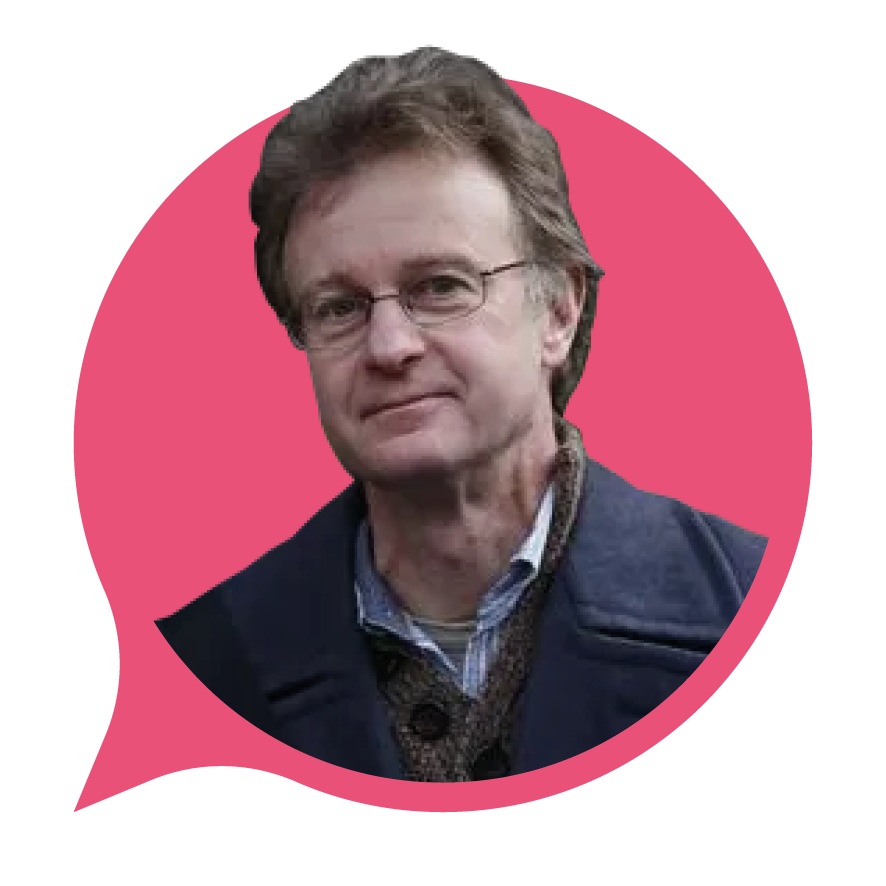An imaginative reframing of education in Scotland
29 Aug 2023
Ahead of Sightlines Initiative's study week in October its Director, Robin Duckett, explores different approaches to early education, drawing inspiration from the preschools of Reggio Emilia in Italy.
“This is the best life I ever had”, was the blissful exclamation of a six-year-old in one of our ‘Learning to Learn in Nature' projects, during a weekly school session in a nearby bluebell wood.
Surely we should be hearing this kind of accolade from all children, if we were to get our places of education ‘right for children'.
Since 1997, Sightlines Initiative has been active in early childhood education, through action-research projects, national networking and international exchanges, to ‘get education right for children’, so the girl’s exclamation was the best kind of endorsement we could have.
Our starting principle has always been that children are born capable, sociable, creative enquirers and places of education should be lively and intelligent enough to work with these capacities, not squash them.
Some regions of the UK are really beginning to attend to what this could mean, and how to ring the changes. Scotland and Wales have both recently produced very positive, human-focussed policies. This is very heartening, but everyone knows the tendency to pull back to ‘the old story’, to do what has always been done, because it seems safe and uncontroversial.
Our mainstream history of education, and unfortunately the UK political push during the past twenty or so years has been to treat education as a collection of programmes of instruction and constant achievement-measuring, rather than for research and enquiry. For recent generations of children and parents, this has been the experienced reality: we are beginning to lose the sense of possibility that anything could be different – and what that ‘different’ could look like.
So it is incredibly energising for educators, policymakers, and parents to be able to visit places of education where things are done differently and where the whole atmosphere is full of enquiry, collaboration, deep learning, excitement, and imagination.
The place I have in mind, because of my long-term connection, and visiting during the past twenty-seven years with thousands of UK educators, is Reggio Emilia in Italy, and the preschool services developed there ‘from the bottom up’, since WWII.
I write this ahead of our upcoming visit opportunity this October, knowing both of the possibilities there currently are for an imaginative re-framing of education in Scotland, and of how effective these encounters are for injecting passion, ideas and determination into the lived worlds of educators, schools and absolutely, of children.
The preschools of Reggio Emilia have for more than a half-century been an international beacon for educators seeking to form enlightened education.
The vision and determination of a local community to create places of warm convivial learning for their children, enriched by a tenacious, researchful vision for education is a lasting and powerful contradiction to the idea of sitting children in an environment of passive instruction.
Multitudes of educators, headteachers, parents and advocates are striving to protect and develop possibilities for educational experiences with children’s rights, wellbeing and proclivities for natural enquiry at the heart. Internationally we can see the development of education with principles informed by the exuberant work of Reggio’s preschools.
Loris Malaguzzi, the philosopher-educator and psychologist who worked closely with the founder-parents of these innovative schools, said,
“One of our strengths has been to start out from a very clear, very open declaration of our ideas about the young child.
It is a highly optimistic vision of the child: a child who possesses many resources at birth, and with an extraordinary potential which has never ceased to amaze us; a child with the independent means to build up its own thought processes, ideas, questions and attempts at answers; with a high level of ability in conversing with adults, the ability to observe things and to reconstruct them in their entirety.
This is a gifted child, for whom we need a gifted teacher.”
And we need passion informed by possibility too, as educators in Scotland, in Wales, and yes in England, strive to slew off old norms of rote-learning regimes and ‘realise the ambition’ (click here for a link to Scottish Government's Realise the Ambition strategy) of supporting all children in fully being themselves.
‘Nothing’, as Malaguzzi proclaimed, ‘without joy.’
And as a young UK preschool educator said this year at the close of a study visit in Reggio, ‘if not now, when? If not me, who?’
Click here to read about the preschools of Reggio
Click here to find out about Sightlines 2023 October Study Week in Reggio Emilia
Click here for more information: www.sightlines-initiative.com


Back to school resources
A series of practical resources for education staff created by the Inclusion Ambassadors
Click here to access
Vision and Values
Our values set out Children in Scotland's beliefs and qualities
Click here for moreEnquire
Find out more about Enquire, the national advice and information service for additional support for learning
Visit the websiteReach
The website for young people offers advice and support on accessing their rights
Visit the website